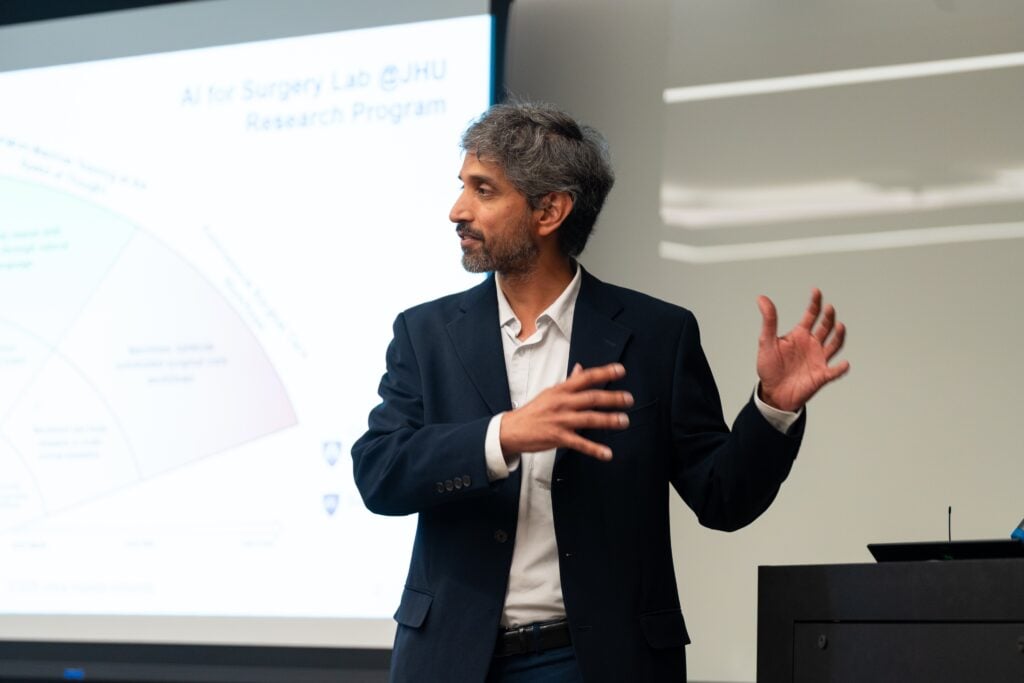As many sectors work to keep up with the rapid evolution of artificial intelligence, government staff must also understand how AI is affecting different industries and technologies that impact their day-to-day work.
To help congressional staffers stay informed on the latest developments in AI and machine learning, the Johns Hopkins Data Science and AI Institute, Engineering Lifelong Learning, and Office of Federal Strategy hosted an information session at the Hopkins Bloomberg Center, connecting them with information, resources, and experts in AI and ML across many disciplines.
“This was really an opportunity for Johns Hopkins to be a resource to congressional staffers and to provide a forum for dynamic and informative discussions on AI and its potential policy implications,” said Chris Austin, director of federal strategy at Johns Hopkins.
Here are some of the key takeaways covered by Malone Center member Swaroop Vedula during the session:
AI can advance medicine in many ways, but AI in medicine isn’t new. Soon after AI methods were invented, it was used to analyze signals such as ECG and EEG in the 1960s, to diagnose diseases through expert systems in the 1980s, and to diagnose cancer by analyzing radiology images starting in the 1990s. Today, the FDA has approved 1,016 AI devices for use in patient care and medicine.
AI has a broad impact across medicine, from global to subcellular scales of human biology. It also affects all aspects of patient care, starting before the onset of disease, through diagnosis and treatment selection, and all the way to recovery and long-term health:
- Error prevention
- Enhanced measurement
- Discovery of new treatments
- Optimization and personalization of interventions
- Augmentation of human capacity
- Enabling autonomous agents
To realize the promise of AI in medicine, AI solutions must be valid, precise, and transparent, says Vedula, who leads the AI for Surgery Lab at Johns Hopkins. A critical need for building trustworthy AI solutions is trusted datasets that are held to a high standard on accuracy, reliability, findability, availability, interoperability, and reusability.
Excerpted from the Johns Hopkins Bloomberg Center website >>
Image Caption: Swaroop Vedula
